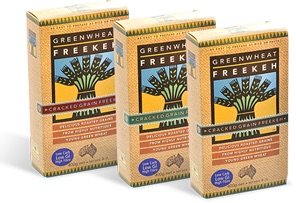
Greenwheat Freekeh received a $900,000 Regional Development Fund grant for the expansion of its production plant at Dublin on the Adelaide Plains.
Named as one of the top 100 foods of 2017, freekeh is actually a process, rather than a grain.
Grains are harvested while young and green, then roasted and dried – a process (also spelled as "freekah", "frikeh", "fireek" or "farik") that avoids the use of chemicals or genetically modified organisms and maximises the nutritional characteristics.
When the grant was awarded in October 2015, Greenwheat Freekeh managing director Tony Lufti said it would contribute to the cost of a new plant capable of producing as much as eight times its 2015 capacity within four years, or more than 3,000 tonnes in 2019.
The expansion would require additional staff to process, store, clean, crack, mill and pack freekeh at Greenwheat’s site about 60 km north of Adelaide.
Now, Lufti said, Greenwheat Freekeh is the world leader in freekeh production, exporting to 19 countries in North America, South America, Europe and Asia. Korea alone imports about $1 million worth of the company’s product a year.
"Our biggest obstacle is capacity," he said. "The grant was extremely valuable in contributing to our ability to increase capacity. While we’re working to expand production, we’re developing the equipment we need, going through technical design, modification and testing.
"It’s a real undertaking from a technical and engineering standpoint. In reality, we’re a technology company operating in the healthy food and wellness sector."
Lufti said the company is also looking to expand its production from using wheat, barley and oats as the source grains to include rye, lentils and rice. "We’re already the world leader in freekeh – if you look at brands such as McCain, McKenzie, San Remo, our logo is on those packages. And today, we are also the world leader on scientific research on green grain.
"That research is making many more endeavours possible – including ready to eat meals and effectively extracting the protein from freekeh and using it in skincare."
Source: PIRSA



 Classifieds
Classifieds


